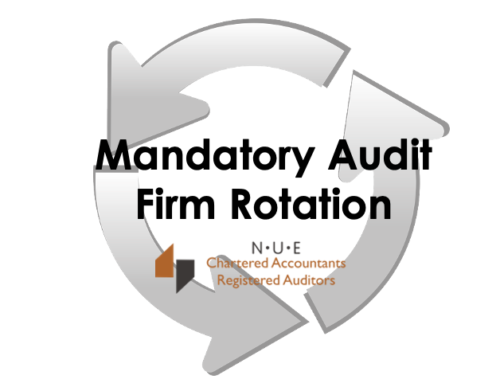Managing cash flow is a critical component of running a small business, and it is even more crucial in a country like South Africa where economic conditions can be challenging. One of the most important aspects of cash flow management for small business owners is maximizing tax deductions. In this article, we will explore various strategies that small business owners can use to maximize their tax deductions.
Understanding Tax Deductions
To begin, it is essential to have a clear understanding of tax deductions. In simple terms, a tax deduction is an expense that can be subtracted from a business’s taxable income, thereby reducing the amount of tax that needs to be paid. In South Africa, small business owners are entitled to a range of deductions, including:
- Advertising and marketing expenses
- Business travel expenses
- Employee salaries and wages
- Office rent and utilities
- Equipment and supplies
- Interest on loans
- Depreciation on assets
It is important to note that not all expenses are tax-deductible, and it is crucial to work with a tax professional to determine which deductions apply to your business.
Strategies for Maximizing Tax Deductions
Once you have a clear understanding of tax deductions, it is time to explore strategies for maximizing them. Here are a few tactics that small business owners can use in South Africa:
- Keep accurate records: To maximize your tax deductions, you need to keep detailed records of all your business expenses. This includes receipts, invoices, and bank statements. Accurate record-keeping will help you identify deductible expenses and ensure that you claim all the deductions you are entitled to.
- Plan ahead for deductions: Timing is everything when it comes to maximizing tax deductions. Plan your expenses to ensure that you incur them in the same tax year that you need the deduction. For example, if you are planning to purchase new equipment, it might be wise to do so towards the end of the tax year to maximize your deductions.
- Utilise tax credits: In addition to deductions, small business owners in South Africa can also take advantage of tax credits. Tax credits are a dollar-for-dollar reduction in your tax liability. For example, if you are eligible for a R10,000 tax credit, that amount will be deducted from your tax bill.
- Take advantage of depreciation: Depreciation is a tax deduction that allows businesses to write off the cost of assets over their useful life. In South Africa, the depreciation rate varies depending on the type of asset. Working with a tax professional can help ensure that you are maximizing your depreciation deductions.
- Consider outsourcing: Small business owners in South Africa often wear many hats, but sometimes it makes sense to outsource certain tasks, including tax preparation. By outsourcing your tax preparation, you can ensure that you are taking advantage of all available deductions and credits.
Managing Cash Flow
Effective cash flow management is essential for small business owners. Cash flow refers to the movement of money in and out of your business. When cash flow is positive, you have more money coming in than going out, which gives you financial stability. When cash flow is negative, you are spending more money than you are earning, which can lead to financial problems.
Here are some techniques for improving cash flow:
- Monitor your cash flow: You need to keep a close eye on your cash flow to identify potential problems before they become critical. Regularly reviewing your cash flow statement can help you make informed decisions about spending and investing.
- Manage your expenses: To improve your cash flow, you need to manage your expenses carefully. This means paying close attention to your budget and looking for ways to reduce costs where possible.
- Negotiate payment terms: If your cash flow is tight, consider negotiating longer payment terms with your suppliers. This will give you more time to pay your bills, which can help improve your cash flow.
- Offer incentives for prompt payment: To encourage customers to pay on time, consider offering discounts for early payment. This can help improve your cash flow and reduce the amount of time you spend chasing overdue payments.
Tools for Tracking Cash Flow
To effectively manage your cash flow, you need to have the right tools. Here are a few tools that can help small business owners:
- Accounting software: Using accounting software can help you track your income and expenses and generate financial statements, including cash flow statements.
- Cash flow forecast: A cash flow forecast is a projection of your future cash inflows and outflows. By forecasting your cash flow, you can identify potential problems and make informed decisions about spending and investment.
- Invoice management software: Late payment of invoices can have a significant impact on your cash flow. Using invoice management software can help you track and manage your invoices, reducing the risk of late payments.
Implementing Effective Tax Deduction Strategies
To implement effective tax deduction strategies, you need to create a tax plan that takes into account your business’s unique circumstances. Here are a few tips to help you create a tax plan:
- Work with a tax professional: A tax professional can help you navigate South Africa’s complex tax laws and identify all available deductions and credits.
- Use technology to improve tax management: There are many tax management software options available that can help you track your expenses, manage your deductions, and prepare your tax returns.
- Stay up to date on tax law changes: Tax laws are constantly changing, and it is essential to stay up to date to ensure that you are taking advantage of all available deductions and credits.
In conclusion, managing cash flow is critical for small business owners. Maximising tax deductions is an important aspect of cash flow management, and there are many strategies that small business owners can use to achieve this. By keeping accurate records, planning ahead for deductions, utilising tax credits, taking advantage of depreciation, and outsourcing certain tasks, you can maximise your deductions and reduce your tax liability. Effective cash flow management techniques, such as monitoring your cash flow, managing your expenses, negotiating payment terms, and offering incentives for prompt payment, can help you maintain financial stability. Finally, by creating a tax plan, leveraging technology, and staying up to date on tax law changes, you can implement effective tax deduction strategies and ensure that you are taking advantage of all available deductions and credits.




